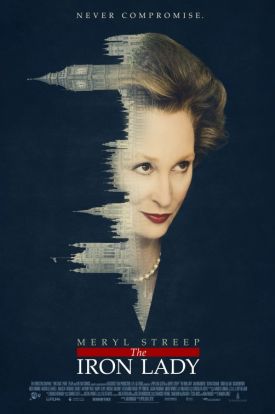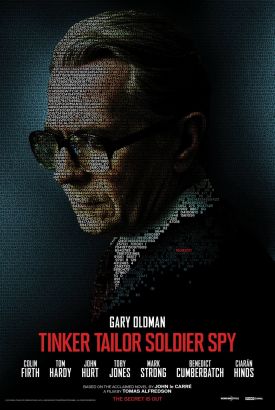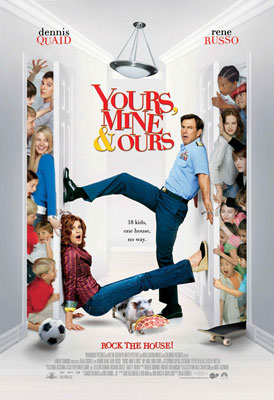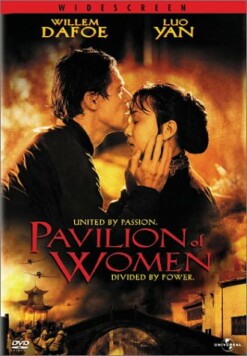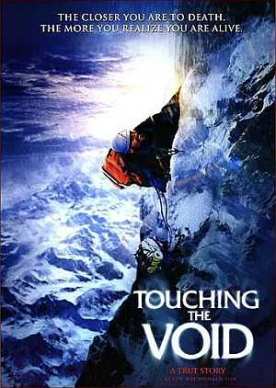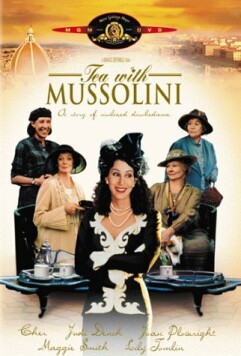Iron Lady, The
All the review of The Iron Lady that you really need is to be found in the headline to a recent article in The Times of London by Daniel Finkelstein: “Thatcher was not just strong. She was right.” Unless this be granted, the case goes by default that the former British prime minister was the monster of left-wing caricature. The difficulty for the film-makers — Phyllida Lloyd (Mamma Mia!) directed, Abi Morgan (Shame) wrote the screenplay — is that they don’t want the caricature but they don’t want her to be right either. To get around this difficulty they have made a political movie from which the politics has been extracted as a taxidermist draws out the brain of an animal he is stuffing through its nose. If there were any politics in it, they would have had to pick a side and portray Margaret Thatcher as essentially right or essentially wrong, so offending a significant portion of their potential audience who are, more than 30 years later, still passionately committed to one view or the other. But there are two senses in which the Thatcher premiership was historic. One is the political sense that the film avoids; the other, chosen by the Mses Lloyd and Morgan, is the merely journalistic sense of “historic” — that is, because she was the first woman to hold the office of the Queen’s first minister. In other words she was strong; on the question of whether she was right or not, the film mostly tries to remain agnostic — and uncontroversial.
Taking the view that the career of Baroness Thatcher (as she now is) was really all about her sex has another benefit from the film-makers’ point of view, since it gives them an opportunity to bang on endlessly about the paradox of the title. How can a Lady be of Iron? Yet we see Mrs Thatcher (as she then was) being so strong and masterful in running the country, yet so weak and feminine on her human side, especially now that (as has been widely reported) she is suffering from a form of senile dementia (not Alzheimer’s disease). Thus, ahead of the title, we have an opening scene of an old lady buying milk in a convenience store. She is unrecognized by anyone even though, twenty years earlier, hers was the most familiar face in Britain. She is visibly decrepit: frail, doddery and confused, and these obvious human weaknesses are meant to contrast strikingly with the title when it comes up after her little adventure results in a scolding for her negligent bodyguards. “The Iron Lady” indeed!
OK. We get it. but do we have to keep getting it? The authors just can’t seem to get over what they would no doubt call the irony of it, and so the whole political life of Margaret Thatcher (Meryl Streep), very far from being the most inconsequential one they could have chosen, is squeezed into less than half the movie’s length in order to make room for these clumsy contrasts — look upon this picture and upon this — between the Iron Lady and the irony lady. Or the ironing lady, since the equally uninteresting contrast between the expectations of young housewives when Lady Thatcher was one and the strong leader she was to become is also exploited for all it is worth — and a good deal more than it’s worth, in my opinion. At one point, they even have the young Margaret (Alexandra Roach) telling her husband-to-be (Harry Lloyd) that she doesn’t want to die washing up a teacup. “One’s life must matter, Denis, beyond the washing up. Say you understand.”
“That’s why I want to marry you, my dear,” replies Denis. It is a tender moment between them, one of many in the film, but, sure enough, though she doesn’t die, we see her washing up a teacup before she wanders off, still doddering and confused, into the shadows in the final scene. Together with hints from Denis’s ghost (Jim Broadbent), with whom she carries on regular conversations, and from her daughter, Carol (Olivia Colman) — Carol’s twin brother Mark, now living in South Africa, does not make an appearance — the suggestion is one of regret on the film-makers’ part if not on hers that she was not “there” for husband and children as wife and mother on account of her hard-charging and all-consuming political career. It’s an astonishingly retro message for such a film, but perhaps the logical result of its nearly complete de-politicization of that career. And the feminists won’t protest because it’s Margaret Thatcher who they, too, must wish had stayed in the kitchen.
Apart from anything else, the extreme de-emphasis on the truly historical nature of her premiership deprives us of more of Meryl Streep’s uncanny impersonation — to say nothing of making us wonder what makes her important enough to be the subject of a movie. All that which stirred the passions of Britons — and, to a remarkable extent, Americans too — at the time is left out. “Monetarism” and the battle against inflation and industrial stagnation, the epic battle against Soviet Communism, IRA bombs and hunger strikers, Brussels bureaucracy and the striking National Union of Mineworkers, privatization of nationalized industries, the sale of council houses or state-built and -run housing to tenants, the modernization of the post-industrial British economy and, incidentally, of the opposition Labour Party, the military and diplomatic assertion of Britain’s prominent place in the world — all of this is simply left out, or reduced to flashback images in the mind of a woman for whom their meaning is apparently as obscure as it is for the audience.
Even where the film portrays actual historical events, it has no interest in why or how they happened or what Mrs Thatcher did in response to them. There are brief accounts of the Falklands War in 1982 and the Brighton bomb of 1984, though they are included out of sequence and leave out any explanation of the reasons for either, or of what she did about them. The IRA bomb which went off in the Grand Hotel in Brighton during the Tory party conference made her a victim, but we do not see her indomitable insistence on speaking the next day anyway. And the point of the passage on the Falklands is merely to show her in quasi-heroic postures — including her ordering of the sinking of the Argentine battleship General Belgrano — as a tough, unfeminine and unfeeling military leader before the film’s headlong rush through a montage of the intervening eight years to a representation of her cruel imperiousness in cabinet (which is invented) and her subsequent downfall when Sir Geoffrey Howe (Anthony Head), the man she humiliated, turned on her.
Many of Lady Thatcher’s admirers, including her official biographer, Charles Moore, and her collaborator on her memoirs, John O’Sullivan, have had good things about the film, since the payoff for its leaving out all the politics, which is to say all the reality of her career, has been a largely sympathetic if pitying portrait of the lady herself in what it is pleased to describe as her dotage. I understand their sense of relief that this most hated woman of her time is allowed to appear sympathetic, but I can’t help feeling that such a reaction shows how low our expectations of movies have become, if we are pathetically grateful for a Thatcher portrait which dares to present her as human. The fierce hatred of her on the left was and is still owing to the left’s fierce need to believe of the woman who made “There Is No Alternative” (TINA) her watchword that there was an alternative — the alternative of infinite drift and decline — the fantasy of which the haters cling to along with their hate. That she was right is the one thing such people can never admit, and it is out of deference to such people, now perhaps fewer than they were at the time, that this movie has been made.
Discover more from James Bowman
Subscribe to get the latest posts to your email.

